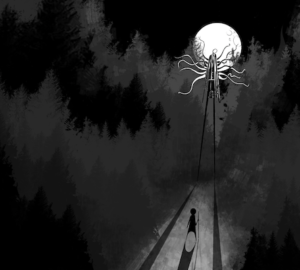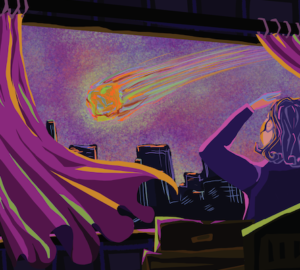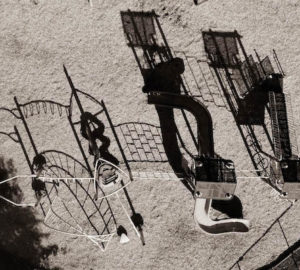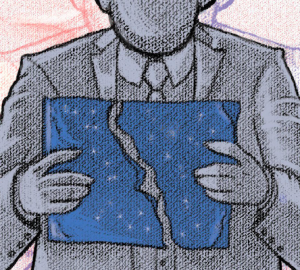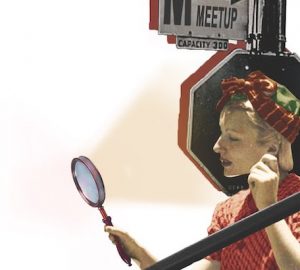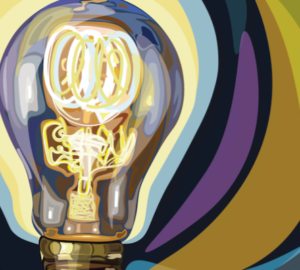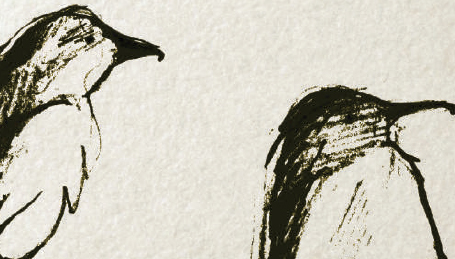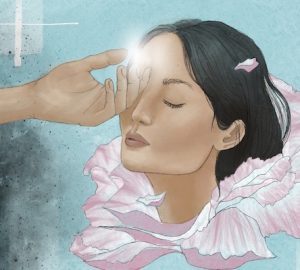WRITTEN AND ILLUSTRATED BY ARUNDHATI PRASAD
If checking your phone is the first and last thing you do every day, then you are not alone.
According to a recent study by Deloitte, young adults aged 18-24 look at their phones at least 75 times a day. People check their phones almost constantly: in their free time, during movies, while shopping — it is no revelation that our phones and gadgets are like secondary organs that are essential for our hourly survival. They do assist our everyday existence but add an enormous amount of mental pressure that most of us are unaware of.
Imagine spending a whole day without your phone. Sounds easy? It probably was about fifteen years ago. I only got my first phone in high school, and life before that was about memorizing phone numbers and waiting by the home phone for your crush to call. It was about prank calling friends and coordinating group chats on the internet. But it surely isn’t as easy in today’s society.
As an experiment to test our addiction to technology, I decided to go on a digital detox for 24 hours: no cell phone, no laptop, no TV. The day before, I told my friends and family that if they were dying or needed urgent attention they should call my roommate and she would let me know. I borrowed a table clock, and I put my phone on silent, zipping it away in the front pocket of my bag.
I decided to keep track of my behavior and document my experiment in a journal. Here is a messy and restless record of a phone-less day. (Note that the 24 hours also include undisturbed sleeping time.)
9:30 a.m.
I resist the urge to check my phone and start making a tally of how many times I want to check it over the course of the day. After making a quick list of things, I do my laundry, clean my apartment, make lunch, meal prep for the week, and arrange my closet, because why not?
Noon
Time feels slower with no technology to distract me, so I start this book I’ve been meaning to read for a while.
4:30 p.m.
I go out in the cold to get a hot chocolate, and while I wait I see a bird hiding from the rain. As if it had been rehearsed a million times before, my hand reaches out for my phone to take a picture—not realizing that my phone is not there. So instead, I am compelled to sketch the bird in my notebook, understanding the value of my phone’s camera only in its absence.
4.45 p.m.
This hot chocolate would look so good on my Instagram story. That bird, too.
6:45 p.m.
I miss Google.
8 p.m.
I keep anticipating text messages and phone calls. Itching to reach out and check my phone, I go back to my book.
9 p.m.
The rest of the evening is challenging. I hum songs as my roommate probably bandages her ears in annoyance, because, hello! No Spotify. I spend some time talking to a friend, go grocery shopping without my phone and write postcards to my cousins.
9:42 p.m.
Are people messaging me? Do they think I’m dead?
10:20 p.m.
Netflix. Netflix would be so great right now.
10:30 p.m.
This digital detox would look so great on my Instagram story. I should’ve gotten someone to document me secretly.
11 p.m.
The day has finally ended. I am restless, yet somewhat pleased. The next few hours are going to be much easier to survive. I lay in bed, proudly looking at the book I finished and the desk I cleaned. I don’t remember the last time I went to bed without looking at a screen.
The next morning when I finally reconnected, I had 250 notifications between texts and social media, a few missed calls and a total tally of 69 times I wanted to check my phone.
There was also a message from a friend welcoming me back to the world.
Unplugging truly felt like getting over a drug addiction. I wouldn’t be surprised if they came up with digital detox patches to help people get rid of their obsession with gadgetry. I was caught between the luxury of enjoying a moment alone but constantly wanting to share it.
My experiment helped me realize a few things about our relationship with technology. First, checking your phone is a buffer habit. When we don’t know what to say or do or where to look, we check our phones. It is the break between a break, a constant escape from reality.
Second, we love to keep up with other people’s lives. During the detox, I missed my social media the most. Knowing what other people are up to is not only great entertainment but a source of information. Third, it’s all about gratification. Our generation is wired to receive instant feedback on everything, whether it is an outfit, a piece of art, a song recommendation or a person we’re attracted to. You may like, share, re-post or swipe right. And last, FOMO (Fear of Missing Out) is real. Being disconnected with the world makes you feel like you’re losing out on information, ideas and stories. You don’t want to be the only one who missed out on a viral meme, a trending hashtag or the next ice bucket challenge.
We wonder how people did it in the past. They wrote letters, sent postcards and waited for trunk calls. Life was probably simpler, and I am sure we were losing fewer brain cells.
It is impractical to completely switch off in a fast-paced society where people are breaking the internet every other second — technology is essential to stay connected. However, a conscious effort in filtering out unwanted information is important, too. The secret lies in learning how to balance these two isolated concepts and not lose our minds trying to do so.
Quite ironically, there are some apps that might help you limit your phone usage and manage your time better. Moment, Offtime and Flippd are a few options that help you track your phone usage and behavior, set goals to limit use of the device or send notifications to unplug for studying or work.
We tend to fill every vacant moment in our lives with a screen for company. And don’t get me wrong — that screen is important (and so expensive to replace, honestly) but time off-screen and off social media allows our hyperactive brains a moment of rest. A digital detox makes us more aware of people around us. Rather than stalking them on Instagram you can ask them how they are, in person. It reduces the inescapable habit of multitasking, improves focus and makes you value your time off screen. Take the time to unplug every now and then. You’ll find it makes you a brighter and more attentive version of yourself.




